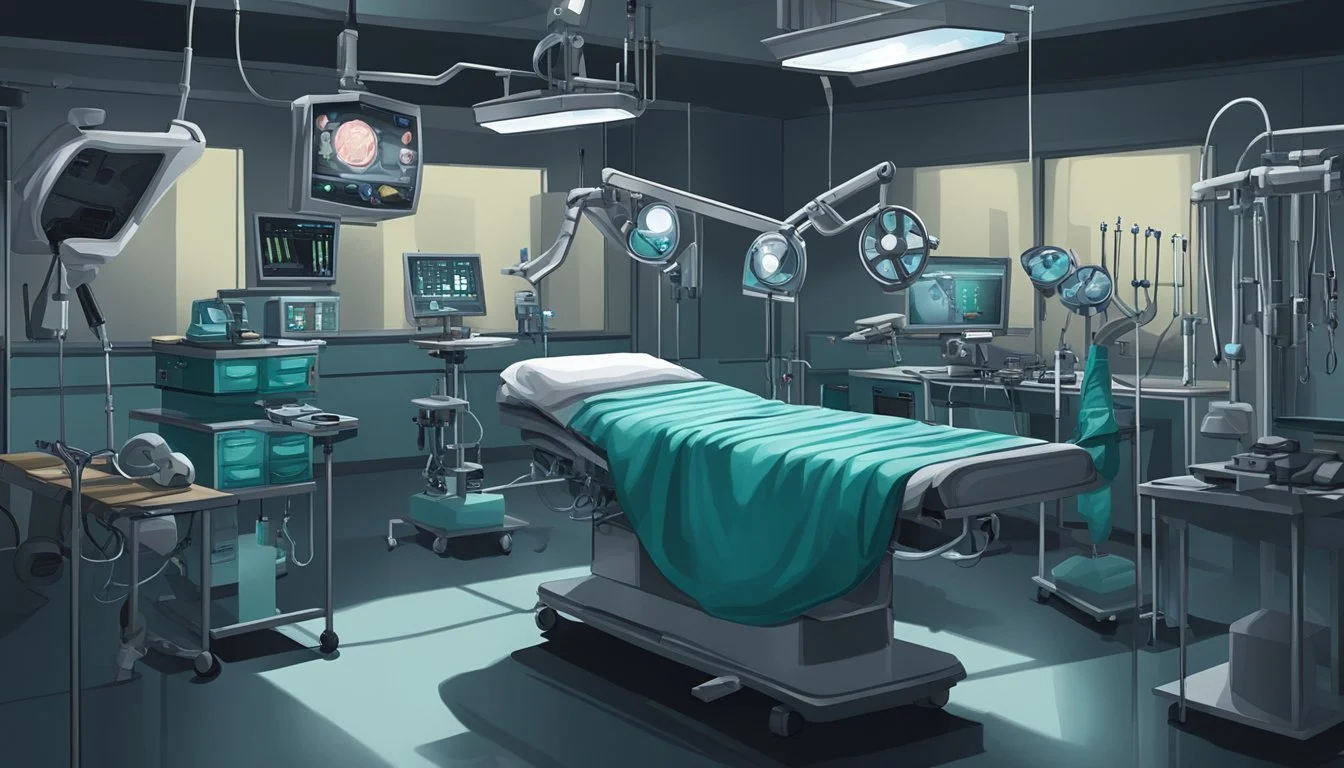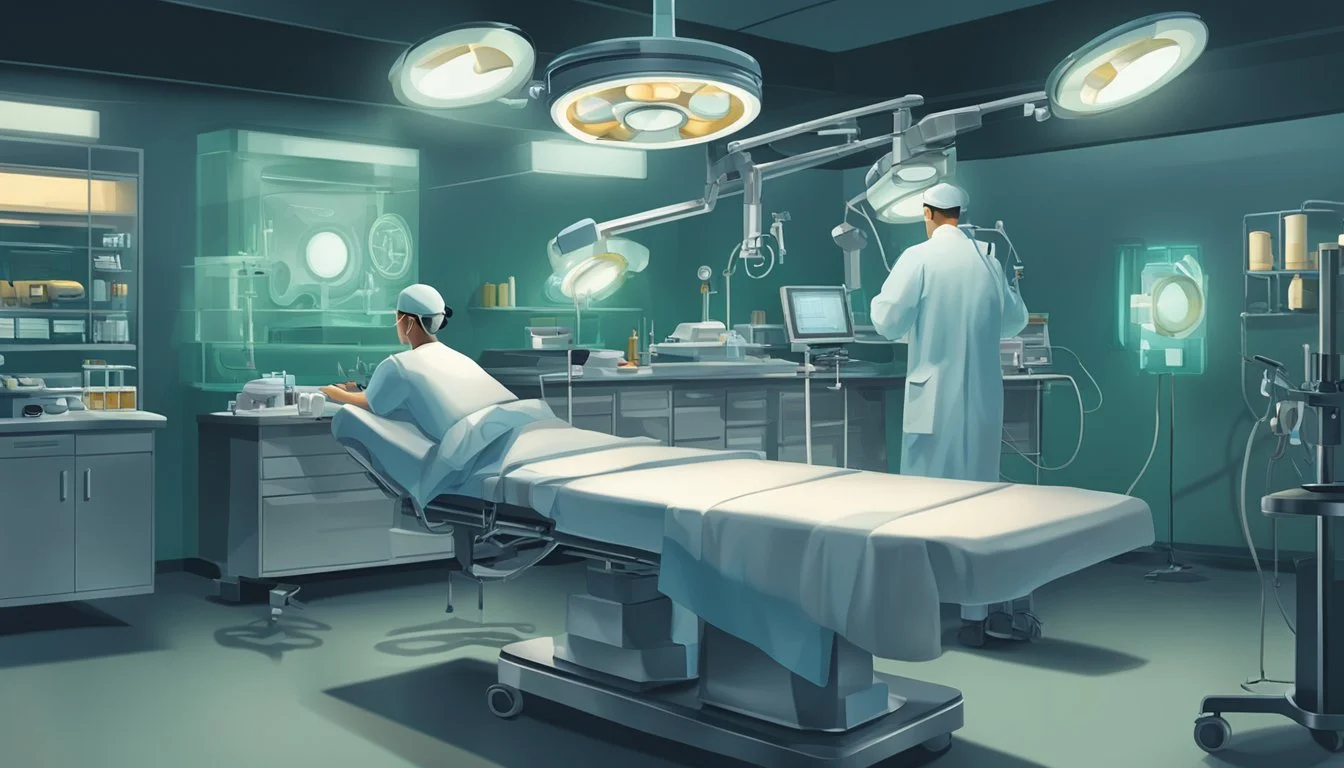7 Eye-Opening Documentaries on Illegal Organ Harvesting Rings
Exposing Global Black Markets
Illegal organ harvesting remains a disturbing global issue that often escapes public awareness. Documentaries play a crucial role in exposing these criminal operations, shedding light on the dark underbelly of organ trafficking networks. These films provide viewers with eye-opening insights into the complex web of poverty, desperation, and greed that fuels this illicit trade.
From impoverished villages in developing countries to sophisticated medical facilities, organ harvesting rings exploit vulnerable individuals for profit. Investigative filmmakers risk their safety to uncover these operations, revealing shocking truths about forced organ removal, international organ brokers, and the complicity of medical professionals. Their work raises important ethical questions about human rights, medical ethics, and the global demand for transplant organs.
1) 'Tales From The Organ Trade' by Ric Esther Bienstock
'Tales From The Organ Trade' is a 2013 Canadian documentary film directed by Emmy Award-winning filmmaker Ric Esther Bienstock. The film explores the complex world of black market organ trafficking.
Bienstock's documentary takes viewers on a journey through the shadowy realm of illegal organ trade. It features interviews with various individuals involved in this underground industry, from donors and recipients to brokers and surgeons.
The film examines the ethical dilemmas surrounding organ trafficking. It presents multiple perspectives, allowing viewers to gain a nuanced understanding of the issue.
Bienstock's work has garnered critical acclaim and recognition. The documentary has been screened at numerous international festivals and aired on networks in over 50 countries.
'Tales From The Organ Trade' provides a balanced look at a controversial topic. It presents facts without passing judgment, allowing audiences to form their own opinions on this complex issue.
2) 'The Red Market' by Scott Carney
'The Red Market' is an investigative book by Scott Carney that explores the global trade in human body parts. Carney, a contributing editor for Wired, spent five years researching this underground industry.
The book takes readers on a journey through various aspects of the body trade. It covers organ brokers, bone thieves, and even the sale of live people.
Carney examines how this multibillion-dollar industry operates across different parts of the world. He looks at its historical roots and modern manifestations.
The author visits locations ranging from impoverished Eurasian villages to high-tech Western laboratories. He investigates the economic factors driving this trade and its impact on vulnerable populations.
'The Red Market' sheds light on practices like body snatching, surrogate motherhood, and skeleton dealing. It reveals how poverty often forces people to sell their body parts to survive.
Carney's work is described as a nonfiction thriller. It combines investigative journalism with gripping storytelling to expose this hidden world of commercialized human bodies.
3) 'Human Harvest' directed by Leon Lee
'Human Harvest' is a 2014 documentary film directed by Vancouver filmmaker Leon Lee. The film investigates allegations of organ harvesting in China, focusing on the work of Canadian Nobel Peace Prize nominees David Matas and David Kilgour.
Lee's documentary explores claims that state-run hospitals in China harvested and sold organs from prisoners of conscience. The film primarily examines allegations involving Falun Gong practitioners as victims of this practice.
'Human Harvest' features interviews with doctors who claim to have been forced to remove organs from live political prisoners. It also includes testimonies from former prisoners of conscience who report being subjected to repeated blood tests.
The documentary won a Peabody Award for its investigative reporting on this controversial issue. It presents evidence gathered by Matas and Kilgour, who spent years researching the alleged organ harvesting trade in China.
Lee's film aims to shed light on what some consider one of the world's most severe human rights violations. It presents a challenging and thought-provoking exploration of a complex and contentious topic.
4) 'Harvested Alive' by Junjie Wang
'Harvested Alive' is a documentary directed by Junjie Wang that explores the controversial issue of forced organ harvesting in China. The film focuses on the alleged targeting of Falun Gong practitioners for their organs.
Wang, a doctor with 30 years of medical experience, spent a decade investigating these claims. The documentary presents interviews with survivors, medical professionals, and human rights experts.
It examines the rapid increase in organ transplants in China and questions the source of these organs. The film suggests a correlation between the persecution of Falun Gong and the surge in available organs.
'Harvested Alive' also delves into the economic aspects of organ trafficking and its impact on the Chinese healthcare system. It presents evidence of short waiting times for organ transplants in China compared to other countries.
The documentary has garnered attention for its in-depth look at a sensitive topic. It aims to raise awareness about alleged human rights violations in the organ transplant industry.
5) 'Trade' directed by Marco Kreuzpaintner
'Trade' is a 2007 drama film that tackles the dark world of human trafficking. Directed by Marco Kreuzpaintner, the movie stars Kevin Kline in a leading role.
The film premiered at the 2007 Sundance Film Festival and later saw a limited theatrical release. It draws inspiration from Peter Landesman's article "The Girls Next Door," which explored the grim reality of sex slavery.
'Trade' follows the story of a Texas police officer, portrayed by Kline, who teams up with a Mexican youth to find the boy's abducted sister. The girl has been forced into sexual slavery, highlighting the brutal nature of human trafficking.
The film delves into disturbing themes, including sexual abuse of minors and violence. It features graphic content, including a rape scene, though without explicit nudity.
While 'Trade' aims to shed light on the horrors of human trafficking, some critics found its approach problematic. The New York Times review described it as "an eagerly prurient dip into the sex-trafficking trough."
Despite its intentions to raise awareness, the film received mixed reviews. Some felt that the director's handling of the sensitive subject matter was questionable, potentially overshadowing the important message behind the story.
6) 'Organ Trade' episode from 'Unreported World'
The 'Organ Trade' episode of Channel 4's 'Unreported World' series offers a chilling glimpse into the illegal organ trafficking industry. This documentary follows reporter Ramita Navai as she investigates the black market for human organs in Bangladesh.
Navai uncovers a network of organ brokers who target impoverished individuals, convincing them to sell their kidneys. The film exposes the harsh realities faced by those who resort to selling their organs out of desperation.
The documentary reveals how middlemen exploit vulnerable people, often paying them far less than promised for their organs. It also sheds light on the dangerous conditions under which these illegal surgeries are performed.
'Organ Trade' highlights the global nature of this illicit industry, showing how wealthy patients from other countries travel to Bangladesh for transplants. The episode raises important ethical questions about the exploitation of the poor in the international organ trade.
Through interviews with organ sellers, brokers, and medical professionals, the documentary provides a comprehensive look at the various aspects of this shadowy business. It serves as a powerful exposé of a largely hidden form of human exploitation.
7) 'H.O.T. - Human Organ Trafficking' directed by Dror Zahavi
'H.O.T. - Human Organ Trafficking' is a revealing documentary that exposes the dark underbelly of the illegal organ trade. Directed by Dror Zahavi, this film takes viewers on a global journey through the criminal networks involved in this illicit business.
The documentary sheds light on the various players in the organ trafficking chain, including smugglers, mediators, organ hunters, and corrupt medical professionals. It reveals how these individuals operate across borders to facilitate the buying and selling of human organs.
Zahavi's film features interviews with key figures in the fight against organ trafficking. Nancy Scheper-Hughes of Organs Watch provides insight into the history and scope of this issue, which she first encountered in the mid-1980s.
The documentary also shares personal stories from those affected by organ trafficking. One account involves a Brazilian man who claims his son's organs were taken while he was still alive in the hospital, forcing him to flee the country.
'H.O.T. - Human Organ Trafficking' explores how the organ trade exploits the desperation of people in developing countries, highlighting the stark divide between the global North and South. The film serves as a sobering look at this lesser-known aspect of globalization.
Understanding Illegal Organ Harvesting
Illegal organ harvesting is a global criminal enterprise that exploits vulnerable individuals for their organs. This practice operates through complex networks involving traffickers, medical professionals, and desperate patients willing to circumvent legal transplant systems.
The Global Scope
Illegal organ harvesting spans multiple continents, with trafficking routes crossing international borders. The World Health Organization estimates that up to 10% of organ transplants worldwide involve illicitly obtained organs. Developing countries often serve as sources, while wealthy nations become destinations for transplant tourism.
Certain regions face higher risks. Eastern Europe, parts of Asia, and some African countries have reported significant organ trafficking activities. Economic disparities fuel this trade, as poverty-stricken individuals become targets for exploitation.
The global market for illegally harvested organs generates hundreds of millions of dollars annually. Kidneys are the most commonly trafficked organ due to the possibility of living donation.
How Organ Trafficking Operates
Organ trafficking networks employ various tactics to procure organs. Some methods include:
Deception: Victims are lured with false job offers or travel opportunities
Coercion: Threats or violence force individuals to "donate" organs
Exploitation: Vulnerable populations sell organs out of financial desperation
Traffickers often recruit middlemen to identify potential victims. These intermediaries may be local community members or even family members seeking financial gain.
Corrupt medical professionals play a crucial role in the process. They perform illegal surgeries, falsify medical records, and bypass official transplant waiting lists. Some clinics operate clandestinely, while others masquerade as legitimate medical facilities.
Organ recipients typically pay large sums for transplants, often unaware of the organ's illegal origin. The process frequently endangers both donors and recipients due to substandard medical practices and lack of proper screening.
Impact on Victims and Communities
Illegal organ harvesting inflicts severe physical and psychological trauma on victims while destabilizing communities through fear and exploitation.
Human Rights Violations
Victims of organ trafficking face profound violations of their basic human rights. Forced organ removal causes irreversible physical harm and long-term health complications. Many survivors struggle with chronic pain, weakened immune systems, and shortened lifespans.
The psychological impact is equally devastating. Victims often experience severe trauma, depression, and post-traumatic stress disorder. Their sense of bodily autonomy and personal dignity is shattered.
Organ trafficking disproportionately targets vulnerable populations, including refugees, migrants, and those living in extreme poverty. Traffickers exploit their desperation and lack of legal protections.
Socioeconomic Consequences
Organ harvesting rings create a climate of fear and mistrust within communities. People become hesitant to seek medical care or report crimes, fearing they may fall victim to traffickers.
The practice exacerbates existing inequalities. Wealthy individuals can afford to travel for transplants, while impoverished communities are left exposed to exploitation.
Local economies suffer as legitimate medical facilities struggle to compete with the black market. This undermines healthcare systems and reduces access to safe, regulated organ donation programs.
Organ trafficking networks often intersect with other criminal activities, fueling corruption and weakening social institutions. This perpetuates cycles of poverty and vulnerability in affected regions.





